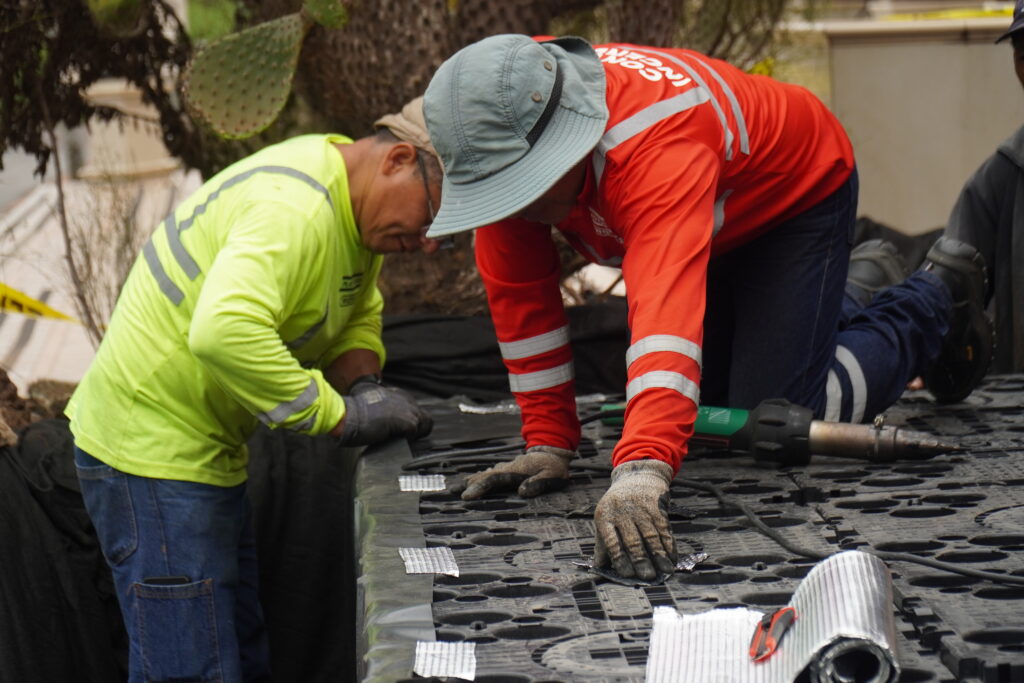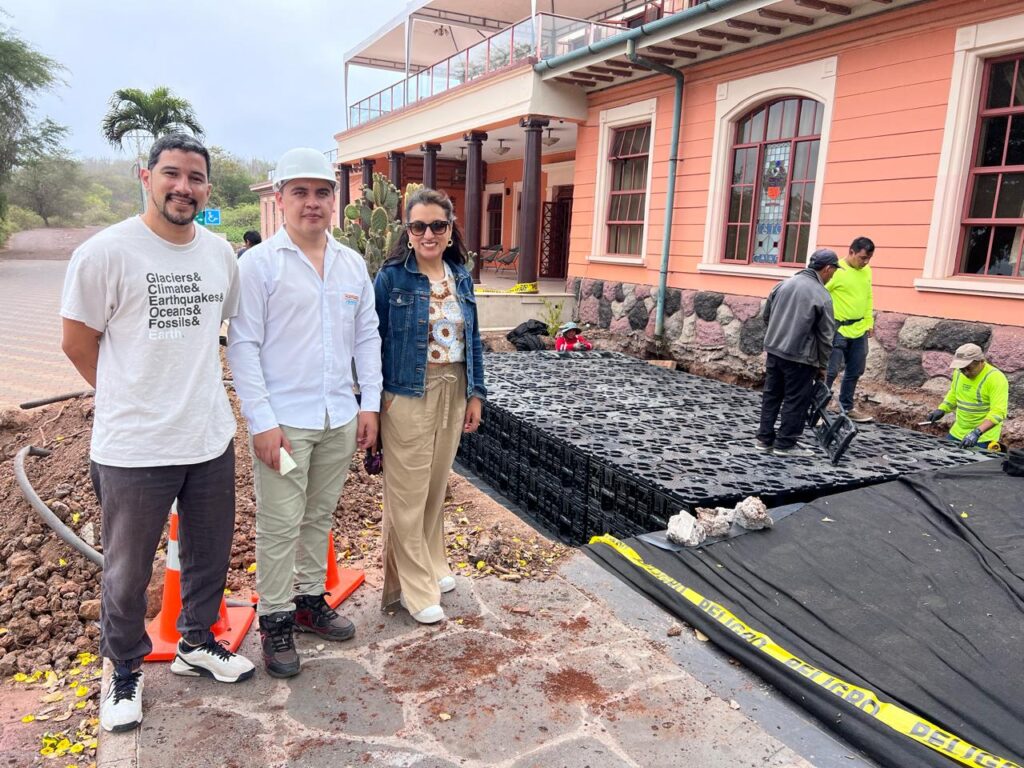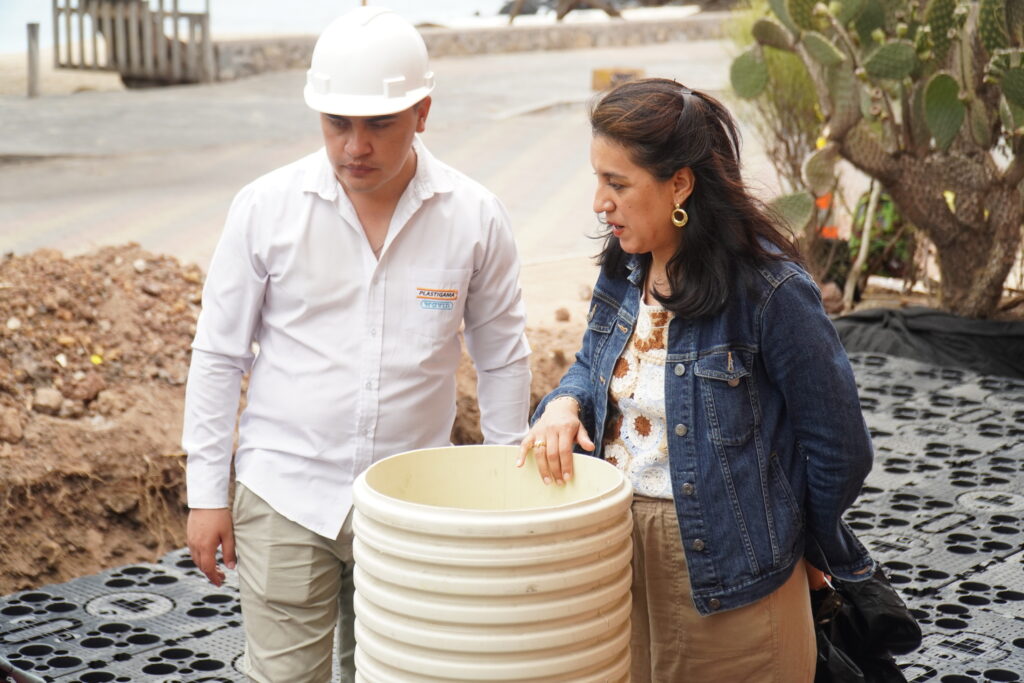En un esfuerzo conjunto para promover la sostenibilidad y la mejora en la gestión del recurso hídrico, Plastigama Wavin, la Coalición por la Seguridad Hídrica del Ecuador, la Universidad San Francisco de Quito (USFQ) con su sede en las Islas Galápagos y el Galapagos Science Center (GSC), ejecutaron en el mes de septiembre el proyecto “Implementación de tecnologías AquaCell 400” cuya utilidad es la cosecha de agua lluvia que atraviesa por un tratamiento que la deja como agua potable y lista para un consumo seguro.
Esta importante acción, que se enfoca en mejorar la eficiencia hídrica en las islas, promete tener un impacto positivo y significativo con el ambiente en las Islas Galápagos, pues a través de este sistema ideado (o patentado) por Plastigama Wavin, se logrará potabilizar un aproximado de 14.2 metros cúbicos de agua conforme el sistema se llene con agua lluvia.

Para cerrar el modelo circular con la gestión de agua lluvia, se implementará también el trabajo del Biotanque Séptico Integrado, otra creación de Plastigama Wavin en Ecuador, que permitirá el tratamiento de aguas residuales domésticas provenientes de las actividades del GSC, así las operaciones de este centro, además de continuar aportando de forma positiva con investigaciones que promueve la conservación de los frágiles ecosistemas de Galápagos, también volcará su operación hacia un modelo sostenible y amigable con el recurso hídrico.
Carlos Valenzuela, supervisor técnico comercial de la unidad Urban Climate Resilience de Plastigama Wavin, enfatiza “La implementación de este tipo de tecnologías, AqcuaCell 400 y Biotanque Séptico Integrado representa un modelo circular para la gestión del agua que no solo permite aprovechar este recurso para su utilización en diferentes funciones, sino que aporta también con gran resiliencia ante posibles eventos naturales asociados con el cambio climático, y con el cambio en el ciclo del agua como inundaciones y sequías. Este proyecto contribuye con la sostenibilidad de nuestras islas y es un ejemplo de la innovación que promueven las nuevas tecnologías para proyectos de construcción sostenibles, aportando positivamente a la eficiencia hídrica y la reducción de riesgos ambientales”.

Mientras que, por su parte, Valeria Ochoa-Herrera, profesora de la USFQ e investigadora del GSC, manifiesta “En la Universidad San Francisco de Quito y en el Galapagos Science Center estamos comprometidos con la implementación de soluciones sostenibles que nos permitan preservar y proteger los recursos hídricos en las Islas Galápagos, donde la disponibilidad de agua dulce es limitada. Hoy más que nunca, estamos llamados a vivir de manera sostenible, adaptándonos y mitigando los impactos del cambio climático en ecosistemas tan frágiles y únicos como Galápagos”
Es así como Plastigama Wavin refuerza su compromiso con la innovación tecnológica en colaboración con la sede de la USFQ en Galápagos, y el GSC, con acciones que permitirán enfrentar los desafíos ambientales en vista de un futuro más sostenible para esta región tan valiosa para el Ecuador y el mundo.



